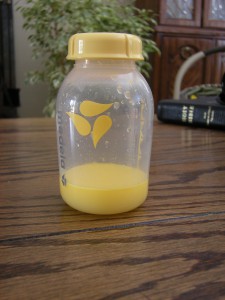A mother who is struggling to provide enough milk to her baby will go to great lengths to increase her supply. She will hang on to every word of every well-meaning friend, relative or health care provider. Unfortunately, much of what she hears may be untrue or even potentially harmful to her health!
The number one myth I hear over and over again is that one must drink milk to make milk. This is not only false it makes no sense. Think about other mammals. Do you know of any adult mammal who drinks milk? Of course not! Mammals produce milk for their infants. When they mature and wean, they no longer need their mother’s milk. Think about dairy cows. They are prolific milk producers. And not one of them drinks milk! Continue reading

